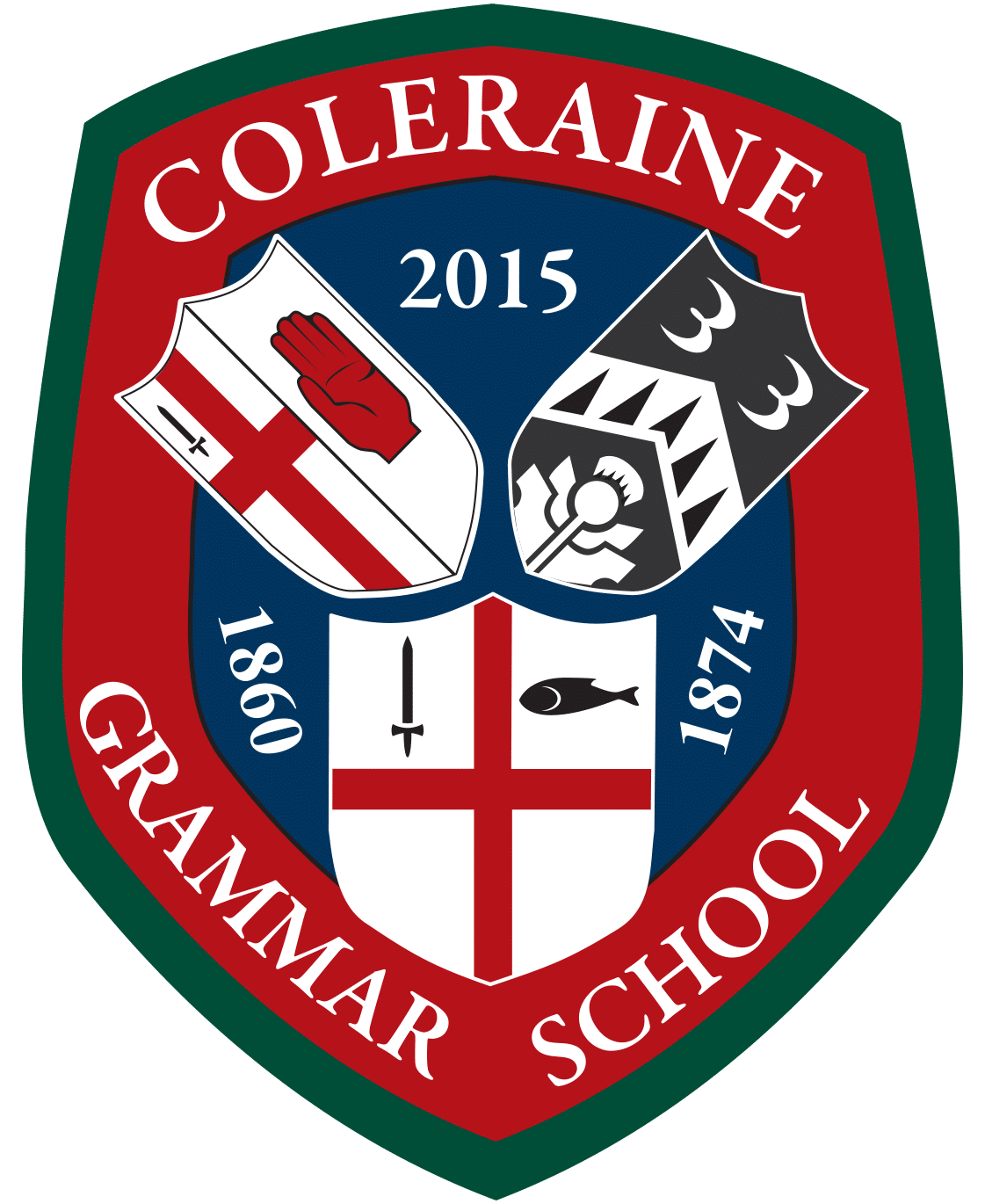Welcome to the Policies and Reports section of the website. We hope that the information provided here will answer many of the questions you may have about Coleraine Grammar School and your child’s schooling.
- Access Arrangements Policy
- Admissions Criteria
- Admissions Policy for Years 9, 10, 12, 13,14 – 2024_25
- Admissions Policy for Year 11 – 2024-25
- Anti Bullying policy
- Attendance Policy
- Bring Your Own Device policy
- Child Protection Policy
- Child Protection Policy Summary
- Complaints Procedure
- Controlled Assessment Policy
- Cred policy
- Curriculum Policy
- Designated and Deputy Designated Child Protection Teacher Images
- E safety policy
- Honours Awards Criteria
- Interim SEN Policy
- Internal Appeals Policy
- Learning and Teaching Policy
- Literacy Policy
- Managing Critical Incidents Policy
- Mobile Phone Policy
- Numeracy Policy
- Period Dignity and Menstrual Well Being Policy
- Pupil Parent Acceptable Use Agreement
- Privacy Policy (Parents & Pupils)
- Promoting Positive Behaviour Policy
- School Centre Determined Grades Policy
- Social Networking Policy
- Relationships and Sexuality Education Policy (RSE Policy)
- Social Networking Policy
- Substance Misuse Policy
- Scheme for the Suspension and Expulsion of Pupils
- School Counselling Service Policy
- Transition Policy for Children with SEN
- Uniform Policy
- Word Processing Policy for Examinations for 2024-25
Inclusion and Diversity documents with links to policies in other languages, click on the following:
CGS School Council documents
Medical Forms
CONCUSSION AWARENESS– WHO NEEDS TO KNOW?
Concussion is a brain injury which is usually caused by hitting the head or a fall. It can happen at any time, anywhere; for example during sports, in the school playground, or at home.
Concussion must always be taken seriously. It is vitally important that any child/young person suspected of having concussion should immediately be stopped from continuing whatever activity they are doing and be assessed by an appropriate healthcare professional within 24 hours.
A second injury when a child has concussion can be extremely serious and may even be fatal. It is vitally important therefore that medical clearance is sought before your child returns to school/play. Children should not resume physical activities such as physical education, sports or games until permitted to do so by a medical professional.
It is also vital that schools and other organisations with responsibility for children are made aware of any injuries involving concussion that a child may have sustained outside school. Parents/carers have a key role in making sure that information is passed on to their child’s teacher, sports coach, youth leader or other care provider.
The UK Government and the Sport and Recreation Alliance (supported by The Department for Communities and Sport NI) have published the first UK-wide “If In Doubt, Sit Them Out” Concussion Guidelines for Grassroots Sport (updated November 2024) to help players, coaches, parents, schools, National Governing Bodies and sports administrators to identify, manage and prevent concussion https://sportandrecreation.org.uk/files/uk-concussion-guidelines-for-grassroots-non-elite-sport—november-2024-update-061124084139.pdf
Specific information for Northern Ireland Schools has been released by the Department of Education (Circular 2024/15) and these must be read in conjunction with the ‘If In Doubt, Sit Them Out’ guidelines; https://www.education-ni.gov.uk/articles/concussion-guidance
However, you must not rely on this guidance as an alternative to seeking medical advice from a qualified medical practitioner or healthcare provider.
Anyone with one or more visible clues or symptoms of a head injury, must be immediately removed from playing or training and must not take part in any further physical sport or work activity, even if symptoms resolve, until assessed by an appropriate Healthcare Professional, which should be sought within 24 hours. An example of an appropriate Healthcare professional may include your GP or local Urgent Care Centre.
CGS Concussion Checklist:
Player:
- As a player, if you feel that you may have suffered from a concussion, alert your coach/team medic/parent and do not play on. Players should be honest and report all signs and symptoms and should never attempt to continue playing.
Teachers, coaches, volunteers:
- Safely remove the individual from the field of play and ensure that they do not return to play in that game even if they say that their symptoms have resolved.
- Observe the player or assign a responsible adult to monitor the individual once the player is removed.
- If player is under 18 years old, contact parent/carer to inform them of the possible concussion. Arrange for the player to get home safely
- Advise that a responsible adult should supervise the player over the next 24-48 hours.
- Ensure any relevant injury report form is completed and stored by the school/club/organisation.
- Follow a graduated return (as outlined within the ‘If In Doubt, Sit Them Out’ guidelines, pages 17-19) to activity (education/work) and sport programme with an emphasis on initial relative rest and returning to education/work before returning to training for sport.
- Advise parents/carers of their role and responsibilities in relation to any concussion incident including advising the school and other relevant organisations about any concussion-related injuries sustained and any activity restrictions recommended by a medical professional.
Parent/carers:
- Obtain full details of the incident.
- Do not leave your child alone for the first 24 hours.
- Have your child assessed by an ‘appropriate Healthcare Professional’ within 24 hours.
- Monitor your child for worsening signs and symptoms of concussion for at least 24-48 hours.
- Encourage initial rest/sleep as needed and limit smartphone/computer and screen use for the first 24-48 hours.
- Inform school/work/other sports clubs of the suspected concussion
- Support your child to follow a graduated return (as outlined within the ‘If In Doubt, Sit Them Out’ guidelines, pages 17-19) to activity (education/work) and sport programme.
IRFU Concussion Protocol/Information:
Ulster Hockey Concussion Guidelines:
